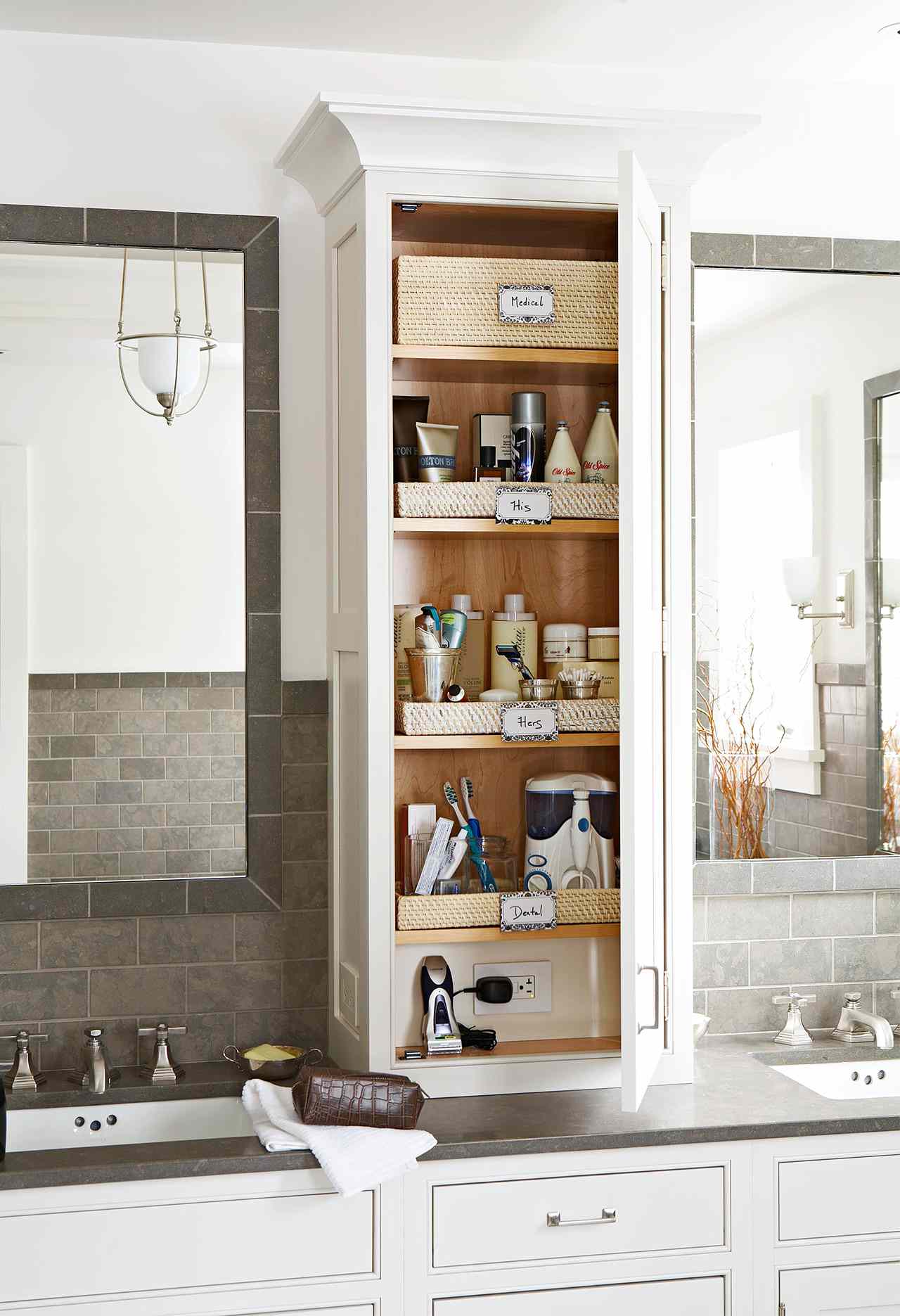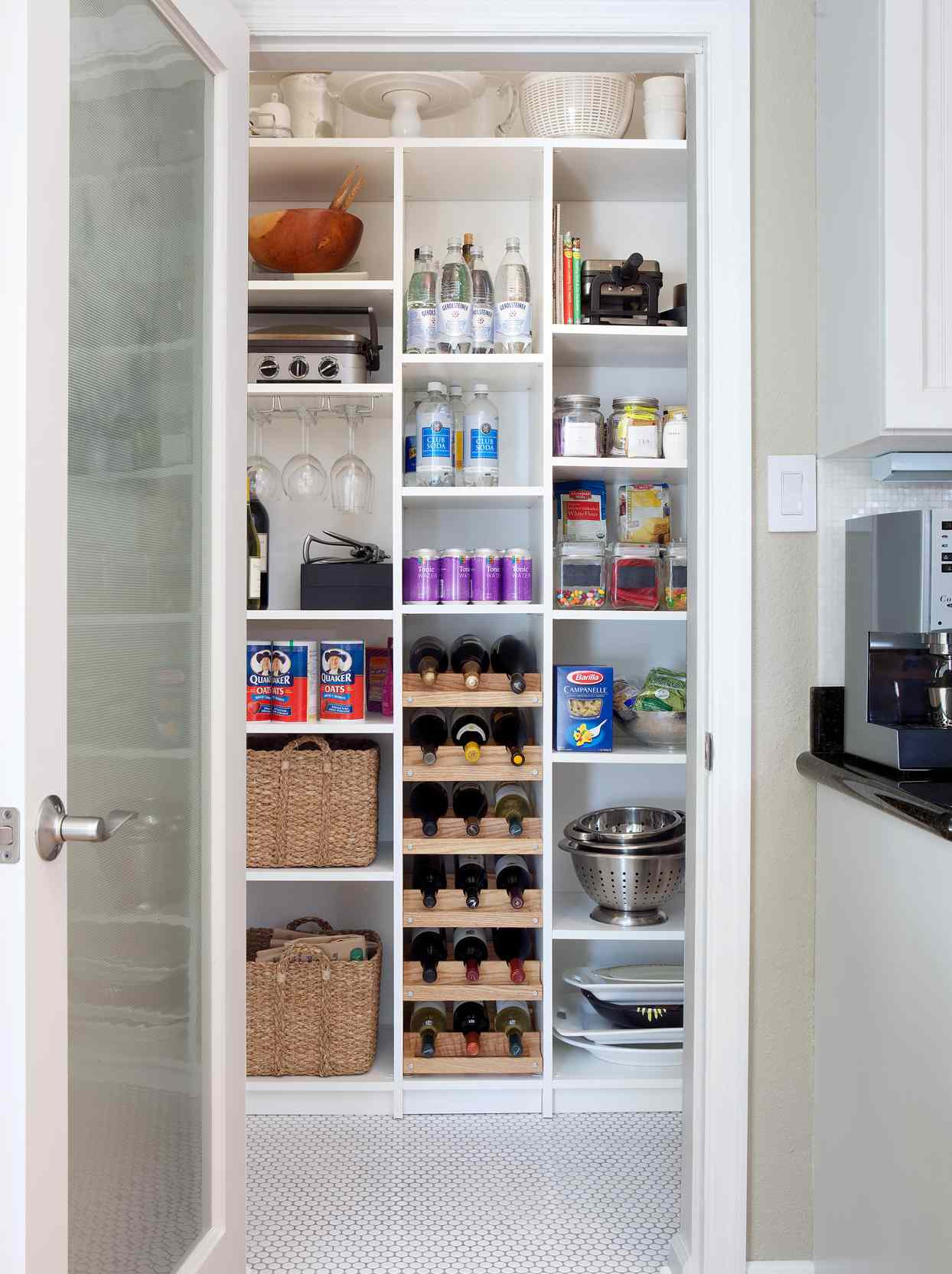
The start of spring is the perfect opportunity to hit refresh on your home. It’s the time to clear a winter’s worth of dust and polish some of those often-overlooked surfaces, such as windows, light fixtures, and walls. But beyond typical spring-cleaning tasks, the new season can also serve as your cue to clear out clutter and start over with a more organized space.
Simplifying any accumulated clutter is just as important as those traditional springtime chores, according to Clea Shearer and Joanna Teplin, the organizing duo behind The Home Edit. That’s especially true since many of us spent more time at home during the past year than ever before. “The purpose of spring cleaning this year, I think more than ever, is that we need a reset on our homes,” Shearer says.
An annual organizing session can work wonders for several areas throughout your home, and you can do this right alongside your other spring-cleaning duties. “The first part of our organizing process is always a cleanse, so the two pieces work together so well,” Teplin says. Here are five organizing projects that The Home Edit recommends tackling every spring.

1. Bathroom Drawers or Cabinets
The spot where you store toiletries could use a once-over every spring. Start by taking everything out of the cabinet or drawer and wiping down the entire area. “There is going to be toothpaste residue on your drawer, somehow, some way,” Shearer says. “No one is exempt from that.” She recommends using a damp heavy-duty paper towel, like the Viva Signature Cloth ($12, Target) to easily wipe away dust and grime.
Once the area is clean, put back only the things you really want in your space. Be sure to check expiration dates on medicines and properly dispose of any medications that are past their prime. Use drawer inserts and bins to categorize and contain items (and make cleaning easier the next time).

2. Closet
Shearer and Teplin recommend going through your wardrobe each spring to assess whether it still fits your style and needs. This process often involves asking yourself tough questions, like whether you’re going to have another baby or if you’ll ever fit into that size again, Teplin says. Although they typically recommend ditching clothes you haven’t worn in 12 months, Shearer says everyone gets a pass this year. Instead, focus on the items that you actually use and feel good wearing. “Owning only the things that you really want can be very powerful,” Shearer says.
In client projects, they also typically allow for an “aspirational section” that can include items that you might not be able to wear now but hope to someday. However, it’s important to think critically about how much space you’re willing to devote to these pieces. “You get the space or you get the item; you can’t have both,” Teplin says. “At some point, you need to decide what’s worth keeping.”

3. Kids’ Spaces
Children’s toys, books, games, and more can quickly accumulate to overwhelming levels, so it’s important to declutter and reorganize kids’ bedrooms and playrooms at least once a year. “Especially when they’re young, your kids’ development is happening at such a fast clip,” Teplin says. “What they played with a year ago may not be a part of their current repertoire.” Invite kids to get involved with the organizing process and help determine what to keep or donate. This allows them to take ownership over their space and makes them more apt to keep things tidy over time, Shearer says.
Shearer also notes that color-coordinating items, a signature part of The Home Edit’s process, is a great task for young ones to tackle. “Kids love to color-coordinate things because it’s an organizing system that they can easily understand,” she says. Have them put books or clothes in rainbow order so they can determine exactly where to put items away later.

4. Makeup Bag or Drawer
Makeup and skincare products need a regular purge to ensure they’re still safe to use. “People don’t usually think of beauty products as something that expires, but they definitely do,” Shearer says. After taking everything out of your makeup bag or vanity, discard any expired or unwanted items, including those samples you’ll likely never use. “It’s a great gut check on what you like and want to buy more of and what you’re definitely not buying again,” Shearer says. Group like items together using drawer inserts or containers and restock the area, keeping only the products you actually use and love. “Now you’re basically living in a store of your favorite things,” Teplin says.

5. Pantry
“Spring is a great time to check expiration dates on canned goods and spices,” Shearer says. Empty your pantry shelves and toss any items that have expired, paying special attention to seasonal items like canned pumpkin. “If you didn’t use your pumpkin puree last year, it’s not going to be good for next Thanksgiving,” Shearer says. After wiping your pantry clean, arrange items into categories, such as breakfast items, sauces and condiments, or snack foods. Use bins or baskets to keep items contained and designate a spot for everything.
Comments are closed